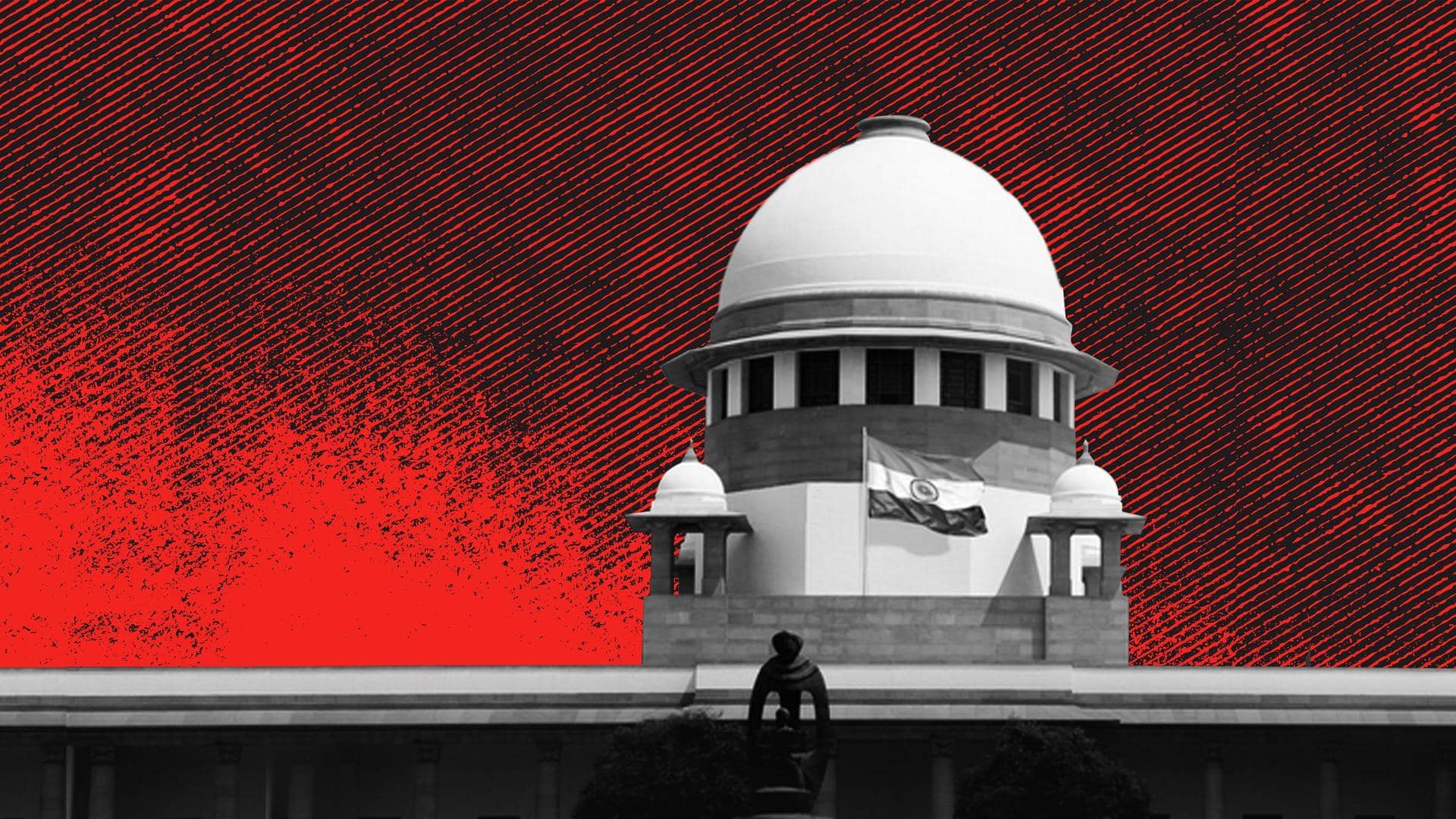
SC dismisses plea seeking collegium meeting details on judges' appointment
What's the story
The Supreme Court on Friday dismissed a petition filed under the Right to Information (RTI) Act seeking disclosure of discussions during a collegium meeting held on December 12, 2018, stating that collegium deliberations were not subject to the RTI Act.
Specific decisions were taken in the meeting purportedly on the promotion of certain judges to the SC, according to The Indian Express.
Context
Why does this story matter?
This came as Vice-President Jagdeep Dhankar, in his maiden Rajya Sabha address on Wednesday, criticized the SC for scrapping the National Judicial Appointment Commission (NJAC), which is established by an Act of Parliament. He termed it a compromise of parliamentary sovereignty.
Last month, Union Law Minister Kiren Rijiju called the collegium system "opaque" and said India was the only country where judges appoint judges.
Information
More details on the meeting
On January 12, 2019, the Supreme Court stated that their December 12 meeting didn't arrive at any conclusion; only talks regarding the names took place. However, when the statement came, Justice Lokur had retired, and the structure of the collegium had also changed.
Tussle
Centre, judiciary at loggerheads since 2014 over appointment of judges
Since 2014, the Centre has been at odds with the judiciary, which accused the former of attempting to control judicial appointments by enacting the NJAC Bill and sitting on recommendations without explanation.
Last month, the Central government returned 19 of the 21 names recommended by the collegium for the appointment of High Court justices, hours before the SC hearing on the selection of judges.
Appeal
Plea filed by RTI activist demanding details
Anjali Bhardwaj, an RTI activist, filed the application in the SC challenging the Delhi High Court's verdict that rejected divulging the agenda of the collegium meeting on the day that purportedly took some decisions on some judges' elevation.
A bench of Justices CT Ravikumar and MR Shah stated that only resolutions drawn and signed by all collegium members could be the final decision.
Quotes
There is no substance in the petition: Bench
"Collegium is a multi-member body whose tentative decision cannot be brought in the public domain," the bench stated.
The bench also said that there was no substance in the petition.
"We do not want to comment on the same. The subsequent resolution was very clear. There is no substance in the (petition); it deserves to be dismissed," it added.
Information
What was the meeting about?
The meeting in question here refers to a collegium meeting under the then Chief Justice of India (CJI) Ranjan Gogoi, where Justices NV Ramana, Madan B Lokur, AK Sikri, and SA Bobde were all present.
Justice Madan B Lokur, while referring to the 2019 meeting, stated that he was disappointed with the fact that the meeting's resolution was not shared on the court's website.
Information